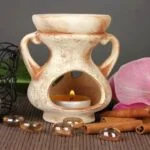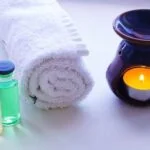Are you interested in learning how to start an aromatherapy home-based business? As the demand for natural and holistic health remedies continues to rise, the aromatherapy industry presents a lucrative opportunity for entrepreneurs looking to start a business from the comfort of their own home. In this article, we will explore the basics of aromatherapy, market research, startup costs, creating a business plan, legal considerations, marketing and branding strategies, and building an online presence for your aromatherapy business.
Aromatherapy has gained popularity in recent years as more people seek alternative remedies for stress relief, relaxation, and overall well-being. With the growing interest in essential oils and natural fragrances, there is a high demand for aromatherapy products and services. This presents a ripe opportunity for individuals to tap into the market and establish a successful home-based business.
In this section, we will delve into the reasons behind the rising popularity of aromatherapy and its potential as a profitable venture. We will also discuss how starting an aromatherapy home-based business can be a rewarding endeavor both financially and personally. Whether you are passionate about holistic health or seeking a flexible work-from-home opportunity, embarking on an aromatherapy business journey could be the right choice for you.
The Basics of Aromatherapy
Aromatherapy is a holistic healing treatment that uses natural plant extracts, known as essential oils, to promote physical and mental well-being. The practice of aromatherapy has been around for centuries, but it has gained significant popularity in recent years due to the growing interest in alternative and natural forms of medicine. These essential oils can be used in a variety of ways, including inhalation, topical application, and even ingestion under the guidance of a qualified aromatherapist.
Aromatherapy is commonly used to improve mood, reduce stress and anxiety, alleviate symptoms of conditions such as insomnia and headaches, and promote relaxation. Different essential oils offer different benefits – for example, lavender is often used for its calming effects, while peppermint is known for its ability to help with headaches and improve focus.
It’s important to note that while essential oils can have numerous health benefits when used properly, they should always be handled with care due to their potency.
When starting an aromatherapy home-based business, it’s crucial to have a deep understanding of the basics of aromatherapy so that you can provide accurate information and recommendations to your potential customers. Educating yourself about the various essential oils, their properties, and how they can be safely used will not only allow you to create high-quality products but also enable you to build trust with your clientele.
Additionally, being knowledgeable about aromatherapy will help you effectively market your products or services by explaining the specific benefits they offer based on the properties of the essential oils used.
| Aromatherapy Benefits | Common Essential Oils |
|---|---|
| Improves mood | Lavender |
| Reduces stress & anxiety | Chamomile |
| Promotes relaxation | Sandalwood |
Market Research
The market for aromatherapy products and services has been experiencing significant growth in recent years. With an increasing emphasis on holistic health and wellness, consumers are seeking natural and alternative therapies to address their physical and emotional well-being. As a result, the demand for aromatherapy products such as essential oils, diffusers, and bath products has been steadily rising. Additionally, there is a growing interest in aromatherapy services such as massage therapy and spa treatments that incorporate essential oils.
Target Audience for Aromatherapy Products and Services
When considering the target audience for an aromatherapy home-based business, it is essential to understand the diverse demographic that is drawn to these products and services. Aromatherapy appeals to individuals seeking relaxation, stress relief, improved sleep quality, and relief from common ailments such as headaches or muscle tension. This broad appeal means that the target audience for aromatherapy products and services spans various age groups and lifestyles.
To effectively reach the target audience for your aromatherapy business, it is crucial to conduct thorough market research and identify the specific demographics and psychographics of your potential customers. This involves understanding their preferences, needs, shopping behaviors, and where they are most likely to seek out aromatherapy products or services.
By gaining insight into your target audience, you can tailor your marketing strategies to effectively reach them through channels such as social media, local events, or partnerships with wellness centers. Understanding market trends and honing in on your target audience will be instrumental in establishing a successful aromatherapy home-based business.
Startup Costs
Starting an aromatherapy home-based business can be an exciting venture, but it’s essential to understand the startup costs involved. As with any business, there will be initial investments required to get your aromatherapy business off the ground. These costs will include product sourcing, marketing expenses, and other essential elements to launch and sustain your business.
Product Sourcing
One of the most significant startup costs for an aromatherapy home-based business is product sourcing. This includes purchasing essential oils, carrier oils, and other raw materials needed to create your aromatherapy products. You’ll also need to invest in packaging materials, such as bottles, labels, and containers for your products. Additionally, if you plan to offer a range of products like candles or diffusers, you’ll need to factor in the costs of sourcing these items as well.
Marketing Expenses
Another important aspect of starting an aromatherapy home-based business is allocating funds for marketing expenses. This could include creating promotional materials like brochures, business cards, and branded packaging. Additionally, you may need to budget for online advertising, trade show exhibitions, or product photography services. Building brand awareness and reaching potential customers is crucial for the success of your aromatherapy business.
Other Essential Costs
In addition to product sourcing and marketing expenses, there are other essential costs to consider when starting an aromatherapy home-based business. This may include investing in e-commerce platforms or website development for online sales. You may also need to set aside funds for professional certifications or specialized training in aromatherapy techniques.
Don’t forget about general business expenses such as insurance, permits/licenses, and office supplies. It’s important to carefully assess all potential costs involved in starting your business to ensure that you have adequate funding to cover these essentials from the outset.
Creating a Business Plan
Starting an aromatherapy home-based business requires careful planning and a solid business plan to ensure success. A well-thought-out business plan will not only help in securing funding but also serve as a roadmap for the future growth of the business. Here are the key steps to create an effective business plan for your aromatherapy venture:
1. Executive Summary: This section provides an overview of your aromatherapy business, including your mission statement, unique selling proposition, and goals. It should capture the essence of your business in a concise manner.
2. Company Description: Describe the nature of your aromatherapy business, the products and services you offer, and what makes your offerings unique compared to competitors in the market.
3. Market Analysis: Research the aromatherapy industry to understand the demand for products and services, identify your target market, and analyze the competition. This section should also include information on current market trends and consumer preferences.
4. Organizational Structure: Outline how your aromatherapy business will be structured, including details about ownership, management team, and staffing needs.
5. Product Line or Services: Provide detailed information about the specific aromatherapy products or services you will offer. Include pricing strategies, manufacturing or sourcing details, and any proprietary blends or unique offerings.
6. Sales and Marketing Strategy: Detail how you plan to promote and sell your aromatherapy products, whether through online channels, retail partnerships, or direct sales efforts. This section should also cover branding strategies and customer acquisition plans.
By following these steps to create a comprehensive business plan for your aromatherapy home-based business, you’ll be better equipped to navigate potential challenges and capitalize on opportunities for growth in this thriving industry.
Legal Considerations
Starting a home-based aromatherapy business requires careful consideration of legal requirements and regulations to ensure compliance with local laws. Here are some important aspects to consider when exploring the legal considerations for your home-based aromatherapy business:
- Permits and Licenses: Research the specific permits and licenses required to operate a home-based aromatherapy business in your area. This may include a general business license, as well as any special permits related to the sale of essential oils or aromatherapy products.
- Product Compliance: Ensure that the aromatherapy products you plan to sell meet all safety and labeling requirements set by regulatory agencies. This may involve obtaining certificates of analysis for your essential oils and adhering to packaging and labeling guidelines.
- Home Business Regulations: Familiarize yourself with zoning laws and regulations related to operating a business from your home. Some areas may have restrictions on conducting commercial activities in residential areas, so it’s important to understand any limitations or requirements that apply to your specific location.
It’s also important to consider liability insurance coverage for your home-based aromatherapy business. This type of insurance can provide financial protection in the event that a customer experiences an adverse reaction to your products or suffers an injury while visiting your home for a consultation or purchase.
Additionally, if you plan to offer services such as massage therapy or holistic health consultations as part of your aromatherapy business, it’s crucial to research any professional licensing requirements or regulations that apply to these practices in your area. Being well-informed about the legal considerations surrounding your home-based aromatherapy business will help ensure that you operate within the boundaries of the law while building a successful venture.
Marketing and Branding
Effective marketing and branding are crucial components of running a successful aromatherapy business. With the market becoming increasingly competitive, it is essential to stand out and make a lasting impression on potential customers. One key strategy is to identify the unique selling points of your products or services and communicate them effectively to your target audience. This can be achieved through various marketing channels such as social media, email campaigns, influencer partnerships, and more.
In addition to promoting your products, creating a strong brand presence is equally important. This involves developing a recognizable brand identity that reflects the values and mission of your aromatherapy business. From choosing the right brand name, logo, and packaging design to crafting compelling brand messaging, every detail contributes to shaping the overall perception of your brand in the minds of consumers.
Another effective strategy for marketing and branding an aromatherapy business is to leverage the power of storytelling. Sharing the story behind your products, such as how they are made or the inspiration behind their creation, can create an emotional connection with customers and build brand loyalty. This approach not only differentiates your business from competitors but also helps in building trust and authenticity with your target market.
It’s also worth noting that customer feedback and reviews play a significant role in shaping the perception of your brand. By providing exceptional customer service and actively engaging with customers online, you can cultivate a positive reputation for your aromatherapy business. Ultimately, by implementing thoughtful marketing strategies and cultivating a strong brand presence, you can effectively position your business for success in the competitive aromatherapy market.
| Marketing Strategies | Branding Tips |
|---|---|
| Social media marketing | Create a unique brand identity |
| Collaborate with influencers | Craft compelling brand messaging |
| Utilize email campaigns | Share the story behind your products |
Building an Online Presence
In today’s digital age, it is essential for any business, including aromatherapy home-based businesses, to have a strong online presence. With the increasing reliance on the internet for shopping and information, having a website and utilizing social media can significantly impact the success of your business. By building an online presence, you can reach a wider audience, engage with potential customers, and establish credibility in the industry.
Setting up a professional website for your aromatherapy business allows you to showcase your products and services, provide valuable information about aromatherapy, and offer easy access for customers to make purchases. It also provides a platform for you to share testimonials, blog posts, or educational content related to aromatherapy, further establishing yourself as an expert in the field.
Additionally, integrating e-commerce capabilities into your website enables customers to easily browse and buy your products from the comfort of their own homes.
Utilizing social media platforms such as Facebook, Instagram, and Pinterest can also be instrumental in expanding the reach of your aromatherapy business. These platforms allow you to connect with potential customers, share engaging content, run promotional campaigns, and build a community around your brand. By leveraging social media effectively, you can increase brand awareness, drive traffic to your website, and ultimately boost sales for your products or services.
In conclusion, building an online presence is imperative for the success of an aromatherapy home-based business in today’s market. It not only facilitates reaching a broader audience but also enables direct engagement with potential customers and helps establish trust and credibility in the industry. By investing time and effort into setting up a professional website and utilizing social media platforms strategically, you can position your aromatherapy business for long-term growth and success in the digital landscape.
Frequently Asked Questions
How to Start Essential Oil Business From Home?
Starting an essential oil business from home can be a great idea for those who are passionate about natural remedies and aromatherapy. The first step is to research and understand the market, including potential competitors and customer preferences.
It’s important to source high-quality essential oils, create a business plan, and set up a professional-looking website to sell your products. Building a strong brand and marketing your products effectively will also be crucial for success in this industry.
Can I Sell My Own Aromatherapy Products?
Yes, you can absolutely sell your own aromatherapy products. Many people have found success in creating their own line of essential oil blends, bath salts, candles, or other aromatherapy products.
It’s important to ensure that you comply with all regulations regarding production, labeling, and selling of these products. Creating a unique selling proposition and building a loyal customer base through effective marketing will be key in this competitive market.
Is There a Demand for Aromatherapists?
There is indeed a demand for aromatherapists as more people seek out alternative and holistic healing methods. Aromatherapists use essential oils to promote physical and emotional well-being through various applications such as massage therapy, inhalation, or topical treatments.
With the growing interest in natural health remedies, the demand for qualified aromatherapists has been on the rise. Pursuing proper training and certification in aromatherapy can lead to opportunities in wellness centers, spas, hospitals, or even starting your own practice to meet this demand.

Are you looking for a natural way to improve your health and wellbeing?
If so, aromatherapy may be the answer for you.





